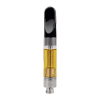- Key Takeaways:
- HHC, derived from the hemp plant, interacts with the endocannabinoid system (ECS), potentially influencing various physiological processes.
- The ECS, a complex cell-signaling system, plays a crucial role in maintaining homeostasis and interacts with both endocannabinoids and cannabinoids like HHC.
- Preliminary research suggests potential therapeutic applications for HHC, including pain management, inflammation reduction, and sleep aid.
- More research is needed to fully understand the benefits and interactions of HHC with the ECS.
- The interaction between HHC and the ECS opens up new avenues for wellness and therapeutic applications.
Understanding HHC: An Overview

Let's dive into the world of HHC, shall we? HHC, or Hexahydrocannabinols, is a group of naturally occurring compounds found in the cannabis plant. It's like the lesser-known cousin of CBD and THC, but don't let its obscurity fool you. This compound has some intriguing characteristics that are worth exploring.
HHC is derived from the hemp plant, a member of the cannabis family. The process involves a bit of scientific wizardry, transforming CBD into HHC through a method known as hydrogenation. It's like a makeover for molecules, resulting in a compound with unique properties and potential benefits.
> "HHC is a testament to the incredible diversity and potential of cannabinoids. Its unique properties and interactions with the endocannabinoid system make it a subject of interest for researchers and wellness enthusiasts alike." - Anonymous
Now, you might be wondering about the potential benefits of HHC. While research is still in its early stages, preliminary findings suggest that HHC may have several therapeutic applications. Some studies point towards its potential use in pain management, inflammation reduction, and even as a sleep aid.
For more detailed information on HHC and its properties, check out this [comprehensive article](https://hhcherb.com/article/understanding-cbd-hhc-cannabinoids) that delves deeper into the subject.
* Key Takeaways: * HHC is derived from the hemp plant through a process called hydrogenation. * Preliminary research suggests potential therapeutic applications for HHC. * Further study is needed to fully understand the benefits and interactions of HHC.
Stay tuned for our next section where we'll dive into the fascinating world of the endocannabinoid system.
The Endocannabinoid System: A Primer

Welcome to the endocannabinoid system (ECS), a complex cell-signaling system in our bodies. It's like a vast network of communication lines, ensuring that different parts of our body are working in harmony.
The ECS is composed of three core components:
| Components | Description | | --- | --- | | Endocannabinoids | These are naturally produced compounds in the body that interact with cannabinoid receptors. | | Receptors | These are found throughout the body and interact with both endocannabinoids and cannabinoids from external sources, like HHC. | | Enzymes | These break down endocannabinoids once they've fulfilled their function. |
The ECS plays a crucial role in maintaining homeostasis, which is a fancy way of saying it keeps our internal environment stable and balanced, regardless of what's happening externally.
Now, how does this relate to HHC? Well, cannabinoids like HHC interact with the ECS, potentially influencing a range of physiological processes including mood, pain sensation, appetite, and sleep.
For a more in-depth look at the chemistry of HHC and its interaction with the ECS, this [article](https://hhcherb.com/article/chemistry-of-hhc-composition-properties-and-applications) provides an excellent deep dive into the subject.
* Key Takeaways: * The endocannabinoid system is a complex cell-signaling system that plays a crucial role in maintaining homeostasis. * It consists of endocannabinoids, receptors, and enzymes. * Cannabinoids like HHC interact with the ECS, potentially influencing various physiological processes.
In our next section, we'll explore how HHC specifically interacts with the ECS and its potential benefits. Stay tuned!
The Interaction of HHC with the Endocannabinoid System

Now that we've got a handle on what HHC is and the role of the endocannabinoid system (ECS), let's delve into how these two interact. It's like a dance, with HHC and the ECS moving in sync to create a range of potential effects.
HHC interacts with the ECS by binding to its receptors, much like a key fits into a lock. This interaction triggers various physiological responses, potentially influencing mood, pain sensation, appetite, and sleep.
> "The interaction between HHC and the ECS is a fascinating area of study. The potential benefits of this interaction could be vast, opening up new avenues for wellness and therapeutic applications." - Anonymous
Preliminary research suggests that HHC may have several potential benefits, including:
* Pain management: HHC may interact with the ECS to help manage pain. * Inflammation reduction: It might also play a role in reducing inflammation. * Sleep aid: Some studies suggest that HHC could help improve sleep quality.
However, it's important to note that research into HHC and its interaction with the ECS is still ongoing. While early findings are promising, more studies are needed to fully understand these interactions and their implications for health and wellness.
For more information on how HHC interacts with the ECS and its potential benefits, particularly for sleep, check out this [article](https://hhcherb.com/article/hexahydrocannabinol-hhc-sleep-benefits).
* Key Takeaways: * HHC interacts with the ECS by binding to its receptors. * This interaction could potentially influence mood, pain sensation, appetite, and sleep. * More research is needed to fully understand these interactions and their implications for health and wellness.
That wraps up our exploration of HHC and the endocannabinoid system. Stay curious and keep exploring!
What is HHC and where does it come from?
HHC, or Hexahydrocannabinols, are compounds derived from the hemp plant through a process called hydrogenation.
How does HHC interact with the endocannabinoid system?
HHC interacts with the endocannabinoid system by binding to its receptors, potentially influencing mood, pain sensation, appetite, and sleep.
What potential benefits does HHC offer?
Early research suggests that HHC may have several potential benefits, including pain management, inflammation reduction, and improved sleep quality.
Is more research needed on HHC?
Yes, while early findings are promising, more studies are needed to fully understand the interactions of HHC with the endocannabinoid system and their implications for health and wellness.
What is the endocannabinoid system?
The endocannabinoid system is a complex cell-signaling system in our bodies that plays a crucial role in maintaining homeostasis.
Can HHC influence physiological processes?
Yes, cannabinoids like HHC interact with the endocannabinoid system, potentially influencing various physiological processes such as mood, pain sensation, appetite, and sleep.







